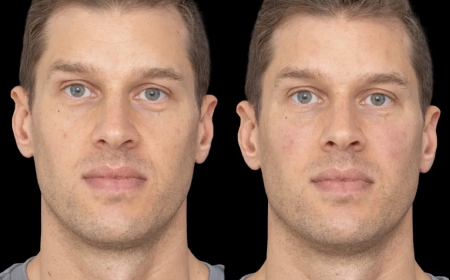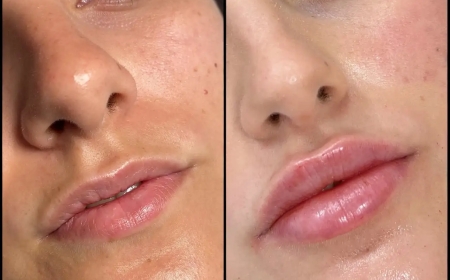Why Ayurveda is Effective for Chronic Migraine Sufferers
In this blog, we explore why migraine treatment in Ayurveda is particularly effective for chronic migraine sufferers, and how it offers long-term relief without relying on harsh chemicals or invasive treatments.

Migraines are more than just headaches. For chronic sufferers, they can be debilitating, often accompanied by nausea, sensitivity to light and sound, and a significant reduction in quality of life. While conventional medicine offers temporary relief through painkillers or preventive medications, these often come with side effects and do not address the root cause of the problem. Ayurveda, the ancient Indian system of holistic healing, offers a different approachtargeting the underlying imbalances that trigger migraines.
In this blog, we explore why migraine treatment in Ayurveda is particularly effective for chronic migraine sufferers, and how it offers long-term relief without relying on harsh chemicals or invasive treatments.
Understanding Migraine in Ayurvedic Terms
In Ayurveda, migraines are understood as a type of Shira Shoola (head pain), most commonly linked to an imbalance in the Vata and Pitta doshas. These doshic imbalances can be triggered by factors such as:
-
Irregular eating and sleeping patterns
-
Excessive stress and anxiety
-
Spicy or incompatible foods
-
Hormonal imbalances
-
Environmental factors like heat or light
According to Ayurvedic theory, when Vata becomes aggravated, it causes pain, dryness, and instability in the nervous system. When Pitta is involved, there may be burning sensations, sensitivity to light, and inflammationsymptoms that closely resemble migraine attacks.
Why Ayurveda Works: A Holistic Approach
1. Treats the Root Cause, Not Just Symptoms
Unlike conventional treatments that mainly mask the pain, Ayurvedic migraine treatment focuses on correcting the internal imbalances responsible for recurring attacks. By understanding an individuals unique constitution (Prakriti) and the state of doshic disturbance, Ayurvedic practitioners design a customized plan to restore harmony in the body.
2. Herbal Remedies with Minimal Side Effects
Ayurveda uses a variety of herbs known for their calming, anti-inflammatory, and adaptogenic properties. Some commonly prescribed herbs include:
-
Brahmi A brain tonic that soothes the nervous system
-
Ashwagandha Reduces stress and balances Vata
-
Shankhpushpi Enhances cognitive function and relieves anxiety
-
Guduchi Detoxifies and reduces inflammation
These herbs not only reduce the frequency and severity of migraines but also support overall mental and physical health.
3. Detoxification Through Panchakarma
For chronic migraine sufferers, Ayurveda often recommends Panchakarma, a set of detoxification therapies that cleanse the body of accumulated toxins (Ama) and restore doshic balance. Treatments may include:
-
Virechana (Purgation) to remove excess Pitta
-
Nasya (Nasal Therapy) to clear sinus and head channels
-
Shirodhara (Oil Dripping on Forehead) to calm the nervous system and reduce stress
These therapies provide profound relaxation and significantly reduce migraine triggers.
4. Emphasis on Diet and Lifestyle
One of the cornerstones of Ayurveda is Dinacharya, or daily routine. For migraine sufferers, this includes:
-
Eating at regular intervals and avoiding skipping meals
-
Following a cooling diet rich in fruits, leafy greens, and whole grains
-
Reducing intake of processed, spicy, and fermented foods
-
Maintaining a regular sleep schedule
-
Avoiding excessive screen time and bright lights
These changes, though subtle, have a powerful cumulative effect in preventing migraine attacks.
5. Mind-Body Connection
Ayurveda recognizes the deep connection between mind and body. Stress, anxiety, and emotional trauma are often root causes or triggers of chronic migraines. Ayurveda offers practices like:
-
Yoga
-
Meditation
-
Pranayama (breathing exercises)
These help manage stress and balance the nervous system, reducing the likelihood of migraines.
When to Consider Ayurvedic Treatment for Migraines
Ayurveda is especially beneficial for those who:
-
Experience frequent migraines that do not respond well to medication
-
Want to reduce dependency on painkillers
-
Are looking for a holistic, side-effect-free approach
-
Prefer personalized and long-term care
-
Want to improve their overall health and immunity
Consult an Ayurvedic Expert
If you're struggling with chronic migraines and seeking a long-term, natural solution, it's wise to consult Ayurvedic doctor online. The experienced team at Prakash Nethralaya, one of the most trusted names in Ayurvedic care, offers personalized migraine treatment plans tailored to your unique needs. With their convenient video consultation services, you can connect with qualified Ayurvedic experts from the comfort and privacy of your home.
Final Thoughts
Chronic migraines can severely impact day-to-day life, but Ayurveda offers a gentle, holistic, and effective approach that goes beyond temporary pain relief. By treating the root cause, supporting the nervous system, and promoting lifestyle balance, Ayurveda empowers patients to take control of their health naturally and sustainably.


































